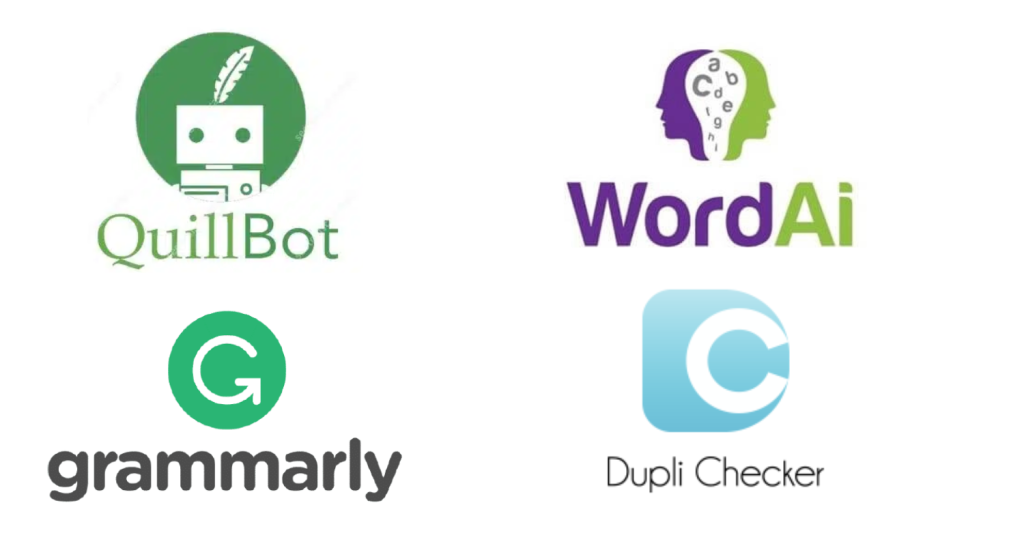In the era of information overload and tight deadlines, paraphrasing tools have become popular among writers, students, and professionals. These online tools promise to rephrase existing content swiftly, saving time and effort. However, a debate lingers: Is using a paraphrasing tool cheating? In this article, we will delve into the ethical implications of employing these tools, examining the arguments for and against their use.
Why Does ChatGPT Ask for a Phone Number?
Understanding Paraphrasing Tools
Before exploring the ethical aspects, it is crucial to comprehend what paraphrasing tools are and how they function. Paraphrasing tools utilize algorithms to analyze and reword existing text, aiming to produce a new version that retains the original meaning while avoiding plagiarism. These tools employ techniques such as synonym replacement, sentence restructuring, and rephrasing to achieve their objective. They are designed to assist writers in reusing information without directly copying it.

The Argument Against Using Paraphrasing Tools
Opponents of paraphrasing tools argue that their usage constitutes cheating. They believe that relying on these tools undermines the fundamental principles of originality and creativity. Critics argue that using such tools enables individuals to present someone else's ideas as their own, leading to academic dishonesty and a lack of personal growth. Moreover, paraphrasing tools may produce subpar quality output, resulting in a diluted understanding of the topic.
Furthermore, opponents claim that paraphrasing tools cannot effectively capture the nuances and intricacies of the original text. Language is complex; mere synonym replacement might alter the intended meaning or tone. This can misrepresent the author's ideas or even result in unintended plagiarism. Checkout Chat GPT and SEO: How Chat GPT is going to Impact SeO
The Argument for Using Paraphrasing Tools:
Proponents of paraphrasing tools, on the other hand, view them as valuable aids that can enhance productivity and efficiency. They argue that these tools are not inherently unethical but depend on intent and usage. Paraphrasing tools can be valuable for those who struggle with expressing ideas in their own words, helping them to reframe and reorganize information effectively.
Additionally, paraphrasing tools can be seen as a means to overcome writer's block or to quickly generate alternative versions of existing content. They offer a starting point for further refinement and creativity, acting as inspiration tools rather than original thought replacements.
It is important to note that proponents stress the importance of properly citing the original source when using a paraphrasing tool. By acknowledging the author's work, they aim to maintain academic integrity and ethical standards.
Benefits of using paraphrasing tools:
Time-saving:

One of the key advantages of paraphrasing tools is their ability to save time. In today's fast-paced world, where deadlines and workloads are tight, these tools can help writers and professionals meet their targets more efficiently. Instead of manually rephrasing content, which can be time-consuming, paraphrasing tools can quickly generate alternative text versions, providing a starting point for further refinement.
Language enhancement:
Paraphrasing tools can be beneficial for non-native English speakers or those who struggle with language proficiency. These tools can assist in improving language skills by offering suggestions for alternative words, sentence structures, and phrasing. Through repeated usage and exposure to different ways of expressing ideas, individuals can enhance their vocabulary and develop a better command of the language.
Idea generation:
Paraphrasing tools can act as catalysts for idea generation. Sometimes, when faced with writer's block or a lack of inspiration, these tools can help spark new thoughts and perspectives. By presenting the same content in a different manner, paraphrasing tools can stimulate creativity and encourage individuals to think outside the box. They can serve as a springboard for generating fresh ideas and exploring different angles on a given topic.
Consistency and coherence:
Maintaining consistency and coherence in writing can be challenging when working on larger projects or collaborating with multiple authors. Paraphrasing tools can ensure a consistent tone, style, and terminology throughout the document. By applying consistent paraphrasing techniques, these tools can help align the overall message and voice of the content, resulting in a cohesive and polished final product.
Difference Between Paraphrasing and Plagiarism
Learning tool:

Paraphrasing tools can serve as valuable learning aids, particularly for students and individuals seeking to improve their writing skills. By analyzing how these tools rephrase the original text, individuals can gain insights into sentence structures, grammar usage, and the overall flow of ideas. It provides an opportunity to compare their own writing with the output of the paraphrasing tool, enabling them to identify areas for improvement and refine their writing techniques.
Conclusion
The ethical dilemma surrounding the use of paraphrasing tools is complex and subjective. While opponents argue that using these tools undermines originality and fosters dishonesty, proponents highlight their value as productivity tools when used responsibly.
Ultimately, the ethical judgment on paraphrasing tools may depend on various factors, including the intended purpose, context, and guidelines provided by educational institutions or professional organizations. It is crucial for individuals to critically evaluate their own intentions and consider the potential consequences when employing these tools.
To strike a balance, one could view paraphrasing tools as valuable aids that can be utilized for initial idea generation or overcoming writer's block, while always emphasizing the importance of personal input and original thought. Responsible use of paraphrasing tools includes a proper citation and acknowledging the original source to maintain transparency and academic integrity.
In the end, whether using a paraphrasing tool is cheating is subjective, and it is up to individuals to navigate the ethical landscape based on their own moral compass and the guidelines set forth by their respective institutions or industries.
